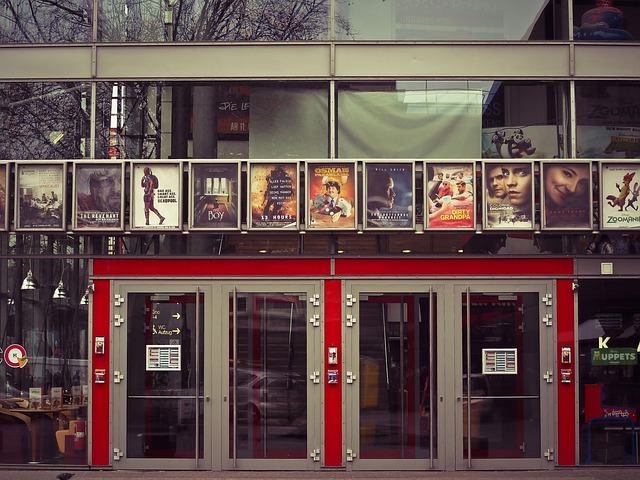
Chinese female everywhere All at Once took home the Oscar for Best Picture. It featured a strong ensemble, excellent direction, and striking cinematography. The screenplay was crafted well, though the plot felt bizarre as heck to me.
Michelle Yeoh delivers a phenomenal performance (as expected) as Evelyn, a Chinese female counterpart to Doctor Strange. Equipped with hotdog fingers, googly eyes, and endless nods to the multiverse, the resemblance is hard to miss. She’s hurled across countless dimensions, meeting wildly different incarnations of herself, each offering a unique perspective, while she alone must protect every universe by engaging with her alternate selves. And all of this unfolds in the middle of an IRS audit by Agent Beaubeirdre (Curtis). Who wouldn’t want their tax appointment to feel like a psychedelic trip or full-on mental breakdown? And honestly, that’s one of the least bizarre aspects of Everything Everywhere All at Once.
Read more about Upcoming Superman Movie
Along her journey, Chinese female encounters alternate versions of her husband Waymond (Quan), daughter Joy (Hsu), and father Gong Gong (Hong). Each actor delivers a rich, layered performance. Portraying a single version of a character is challenging enough, but embodying several distinct versions takes their craft to an entirely different level.
The production design feels convincing in the ordinary moments—like the laundromat and apartment—while also diving into vibrant, surreal locations. At one point, a character bursts into confetti from a single touch. It’s absurd, but undeniably inventive. Much of the film showcases oddball antics that teeter on the edge of unrestrained, “where on earth is this going?” energy. And the answer is… this is the point. By the second act, I had mentally checked out. There’s simply too much happening all at once, with little clarity on how most of it connects. It’s wild—pure bedlam.
I recognize that this very disorder mirrors the chaos we all experience in our own lives—a constant stream of random events we must navigate, which from the outside may appear like total pandemonium, yet from within can hold personal meaning. The film also toys with “what if” scenarios about our potential and the different paths our choices might lead us down. Family is another strong thread in this eccentric narrative. Chinese female and the main character, I don’t find my own life comedic. And while I wish I could draw comfort from this cinematic whirlwind as a way to remind people they’re not alone on their equally strange journeys, I can’t. It’s just not for me—and that’s perfectly fine.
That’s the Chinese female everywhere of having countless stories and perspectives in a worldwide film industry—anyone can share a tale that, ideally, resonates with someone in some way.
One of my earliest reactions to this movie was wondering what the writers had been thinking when they created it. I had a similar thought about the original Willy Wonka & the Chocolate Factory with Gene Wilder once I learned what recreational drugs were, because as a kid, I didn’t enjoy it. Watching it now as an adult, I’ve grown to appreciate it, and maybe I’ll eventually feel the same about Everything Everywhere All At Once. Even though the film isn’t to my taste, I’d still recommend adding it to your watchlist—if the story doesn’t put you off, you’ll get a well-acted, skillfully directed couple of hours of entertainment.
The Circle is a movie about an omniscient, hyper-connected social media tech giant with no past, making it as impersonal as an automated bot. Yet we see it functioning, animated by the concepts and algorithms devised by its founders, Eamon Bailey (Hanks) and Tom Stenton (Oswalt), who remain far from open about their motives.
Adapted from the novel of the same title, its setting echoes the sleek architecture of Apple’s campus. Still, as you watch, it’s hard not to draw parallels to Google, Facebook, and Amazon. The film embraces the mantra, “Knowledge is good. Complete knowledge is best.” Here, privacy is reframed as hoarding data from the collective, prompting the question: what is the true purpose of such a company and the figures pulling the strings?
This movie boasts an impressive cast, yet director James Ponsoldt manages to waste every ounce of their talent. It’s baffling to see such capable actors trapped in roles utterly stripped of substance or purpose. It feels like someone wrote the first draft of a novel and never bothered to expand on the characters beyond their names, occupations, and physical descriptions.
Oswalt, a truly gifted performer, spends the film doing little more than glaring in frustration. Bill Paxton’s role consists mostly of sitting and trembling. Karen Gillan’s Annie starts out like an over-energized puppy (possibly fueled by Adderall) and ends up a hollow, defeated shell, drained by workplace burnout—with no meaningful explanation or context. Chinese female and striking cinematography. could have been the lens through which we see The Circle’s true nature, but the director abandons her arc entirely. Even that feels minor compared to Ty (Boyega), the creator of TrueYou—the ultimate app that replaces every other one by doing it all. Predictably, like many well-intentioned inventions in history, it was used in ways Ty never intended. As a result, he spends his time moping around The Circle’s campus. Why doesn’t he quit? For the salary? A lack of dignity? The film offers no explanation, nor does it seem to care about logic or backstory. Here, character development simply doesn’t exist.
I call it a story, but that’s being far too kind; there’s only the barest hint of a narrative here, and the plot is just as thin. Considering this movie is adapted from a novel whose author also helped write the screenplay, it’s surprising how little substance made it onto the screen. I haven’t read the book myself, but this film leaves me with absolutely no motivation to do so. So what remains? What should a viewer expect? Emma Watson plays Mae, a thankful young college grad who lands a position at the world’s most admired company after working as a temp. Many people can connect with that—along with the initial rush of excitement that comes with starting a dream job. This is where the movie tries to make its point: exposing the problems with big tech, social media, and, by extension, the internet. It paints a picture of a world where your employer is your entire existence, productivity is constant, and privacy doesn’t exist.
Every time we sign up for an account, install a new app, or subscribe to a service, we hand over small pieces of our privacy. We assume our information won’t be shared or sold without our consent, but we rarely think about the larger consequences of giving it away bit by bit. In The Circle, the platform TrueYou combines all the functions that used to require dozens of separate apps. Why juggle thirty apps when one can do everything? Consolidation sounds convenient—until you realize what you’re giving up. Would you surrender your privacy if you could instantly see just how much of your life is stored in one place? Do you grasp the risks of having your personal data used to market products to you, monitor you, or even control you? This is the one area where the movie hits the mark: it forces the audience to consider where the line should be drawn between personal privacy and complete transparency.
The Circle is far from being the greatest film ever made. It had enormous potential to carry real depth, but it’s more of a showpiece—style over substance. Still, I’d recommend adding it to your watchlist. Why? Because despite its flaws, it sparked my curiosity. It pushed me to ask questions and opened the door for discussion. I appreciate stories that do that, even if the execution on screen wasn’t perfect. It’s worth watching at least once.
To mark both the conclusion of the SAG-AFTRA strike and the start of a new year, I decided to take a trip back in time for this week’s review. My first viewing of Quiz Show was in 1999, during a video production course at the vocational school I attended in high school. At that time, the film was about five years old, and when studying the history of television, it served as an excellent classroom example.
Quiz Show is based on the true events surrounding the rigging of 1950s quiz programs. While the first television broadcast took place in 1928, it wasn’t until the late 1940s and into the 1950s that owning a TV became common in American households. With only a few TV networks in existence, there was a constant need for fresh programming. Game shows quickly became hugely popular, dominating much of the schedule. One standout hit was Twenty-One.
The film largely follows the actual events of the Twenty-One scandal but also takes creative liberties—as you’d expect from a dramatized movie. It tells the story of the rise and fall of contestants Herb Stempel (played by John Turturro) and Charles Van Doren (played by Ralph Fiennes), drawing the interest of Dick Goodwin (Rob Morrow) after he read a New York Times article on the matter. Goodwin, working for a Congressional oversight committee in Washington, D.C., was tasked with monitoring television broadcasting. The key question at the center of the investigation was whether contestants were secretly provided with answers in advance.




